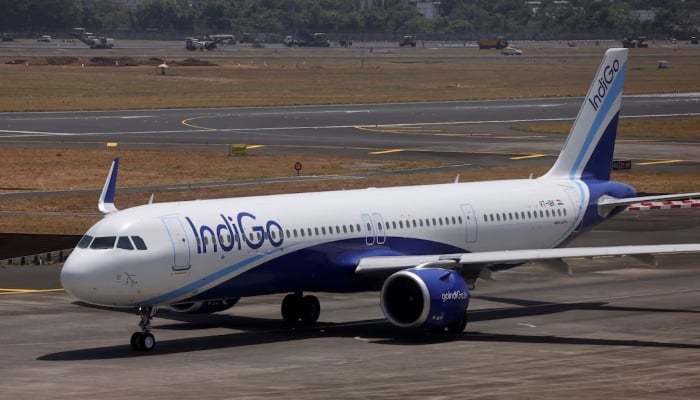
- Indian carriers suffer heavy losses over rerouting.
- Air India demands compensation amid rising losses.
- Major Indian routes severely impacted by closure.
KARACHI: Pakistan has decided to extend the closure of its airspace for Indian flights by another month.
According to sources, the decision is expected to be announced today (Wednesday) or tomorrow. Following this, a Notice to Airmen (Notam) will be issued.
Under International Civil Aviation Organisation (ICAO) rules, airspace restrictions cannot be imposed for more than one month at a time, necessitating periodic extensions.
The decision followed a National Security Committee (NSC) meeting earlier this month, where Pakistan resolved to block Indian overflights after India took provocative steps post-Pahalgam. The restrictions apply to both commercial and military aircraft.
The extension comes amid heightened tensions between the two nuclear-armed neighbours following the Pahalgam attack in April, which resulted in the deaths of 26 tourists in Indian Illegally Occupied Jammu and Kashmir (IIOJK).
India had unilaterally closed its airspace to Pakistani flights on April 23, prompting a reciprocal ban from Islamabad the next day. India then took several other measures against Pakistan.
Later, on May 6-7, India launched unprovoked attacks on multiple Pakistani cities. In response, the armed forces of Pakistan launched a large-scale retaliatory military action, named “Operation Bunyan-um-Marsoos”, and targeted several Indian military targets across multiple regions on May 10.
Pakistan’s response led to the mobilisation of the global powers, following which a ceasefire was reached, which remains intact.
While India’s aviation industry has faced heavy losses, the impact on Pakistani aviation has been minimal. With only one eastbound flight rerouted via China and limited operations in the Far East, Pakistan’s aviation sector remains largely unaffected.
This is not the first time Pakistan has imposed such restrictions. Airspace closures were previously enacted during the 1999 Kargil conflict and the 2019 Pulwama crisis — both instances in which India faced greater aviation disruptions than Pakistan.
Financial blow to Indian airlines
According to sources, Indian airlines have suffered losses exceeding Rs8 billion in the past month alone. These include Rs5 billion in additional fuel costs and Rs3 billion in expenses incurred due to forced stopovers by long-haul flights.
Sources note that Indian carriers operating Boeing 777 and Airbus A320 family aircraft have had to endure 2 to 4 hours of extra flying time per journey. With approximately 150 flights rerouted daily, fuel consumption has surged dramatically.
Experts estimate that a Boeing 777 consumes about 6,668 kilograms of fuel per hour, while an Airbus A319, A320, or A321 uses around 2,400 kilograms per hour. At the current average jet fuel price of $0.82 per kilogram, Indian airlines are spending nearly $557,625 daily on additional fuel alone. That amounts to over Rs5 billion in fuel-related losses in one month.
In addition, the extended travel times have triggered crew duty hour limitations, necessitating crew changes at transit airports. These stopovers also involve added costs for landing fees, refuelling, and airport services. Over the past 30 days, such stopover-related expenses have totalled between Rs2.5 and Rs3 billion.
Air India is reportedly the worst-hit carrier and has requested financial support from the Indian government. Other airlines, including Akasa Air, SpiceJet, IndiGo, and Air India Express, have also faced operational disruptions.
Flights originating from Amritsar, Delhi, Ahmedabad, Bangalore, and Jaipur are now forced to traverse longer western routes over the Arabian Sea. These detours affect flights to destinations in North America, Europe, and the Middle East.
Sources have indicated that if the ban continues and the Indian government does not provide special assistance, Indian airlines may be forced to take extraordinary steps to sustain operations.



